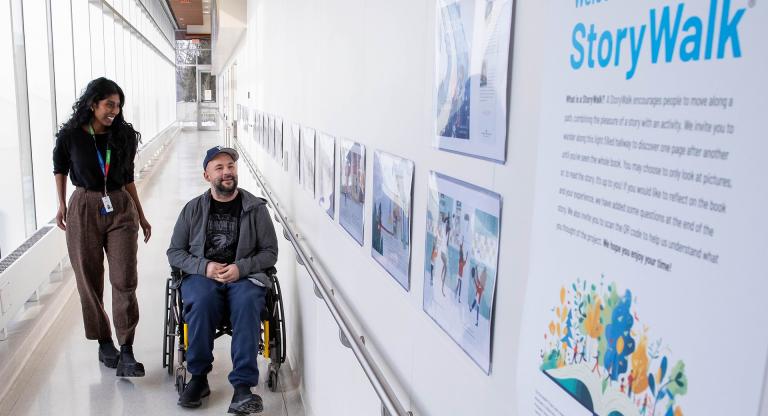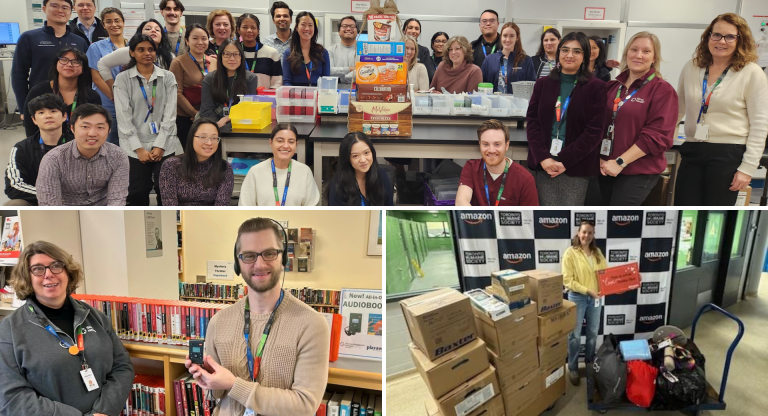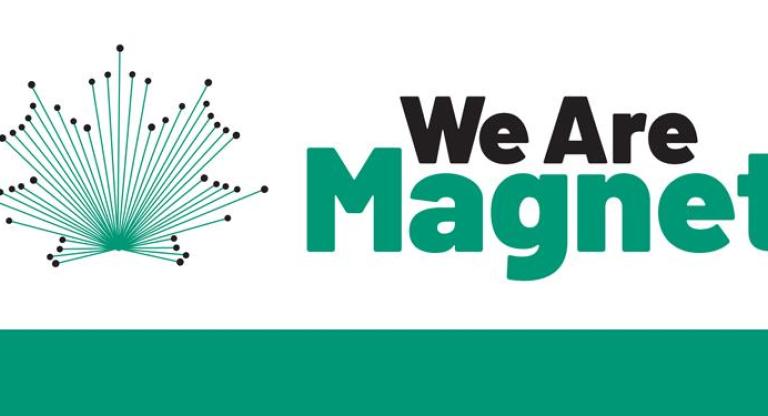Sinai Health celebrates a hat trick with Ontario’s Early Researcher Awards
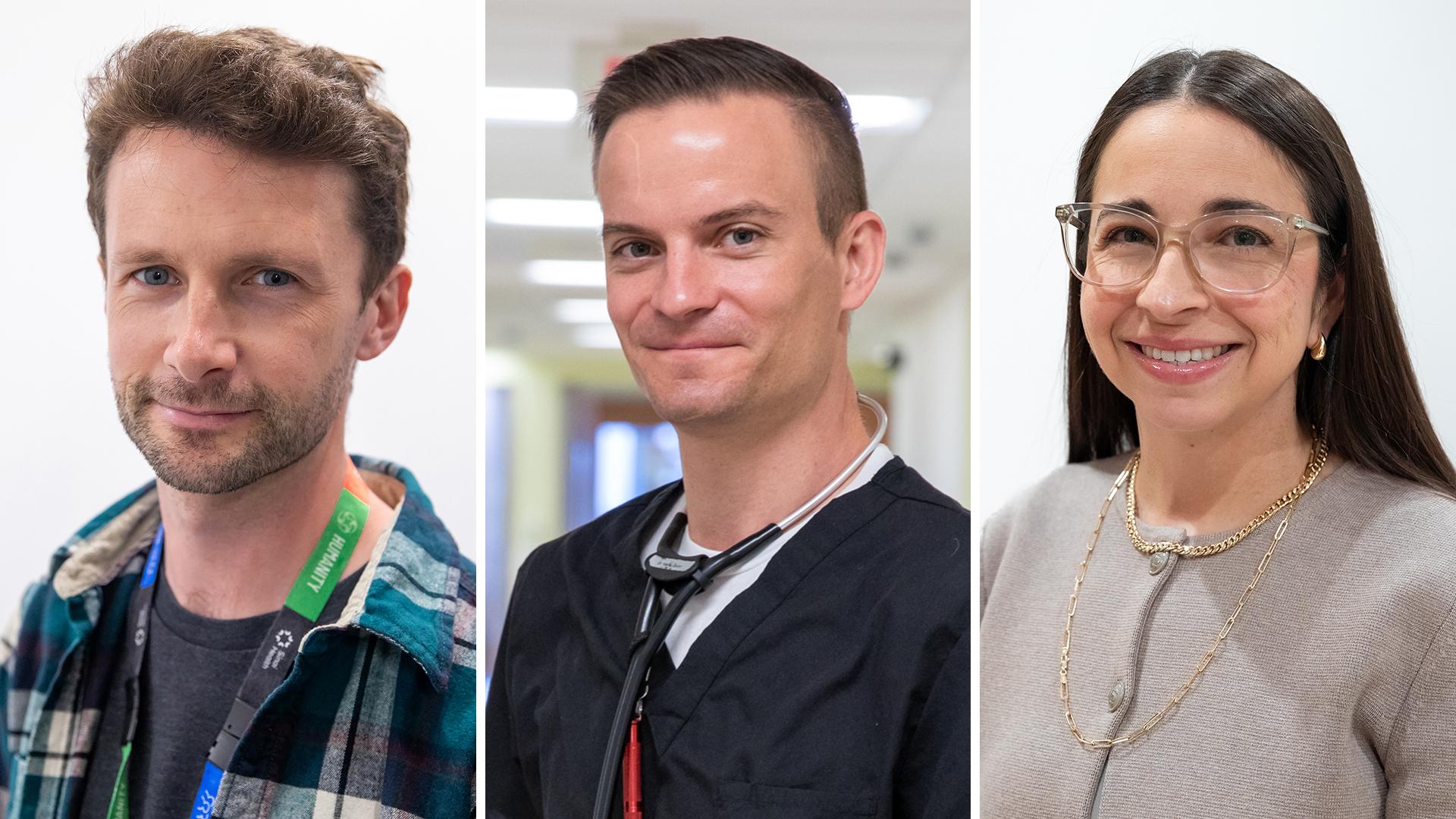
Sinai Health is proud to announce that three of its outstanding scientists—Drs. Kieran Campbell, Kieran Quinn, and Alanna Weisman—have been awarded the prestigious Early Researcher Award (ERA) from the Government of Ontario.
These competitive awards recognize outstanding early-career researchers tackling some of Canada’s most pressing health challenges.
“We are incredibly proud of Drs. Campbell, Quinn, and Weisman for receiving the prestigious Early Researcher Awards,” said Dr. Anne-Claude Gingras, Vice President of Research at Sinai Health and Director of the Lunenfeld-Tanenbaum Research Institute.
“Their work exemplifies the strength and diversity of our research programs—from decoding the tumour microenvironment to improving care for older adults with heart failure and advancing equity in diabetes treatment. It further strengthens our capacity to discover and deliver life-changing care,” said Dr. Gingras.
Mapping the tumour microenvironment to supercharge cancer immunotherapy

Dr. Kieran Campbell is an Investigator at the Lunenfeld-Tanenbaum Research Institute at Sinai Health, who is developing and applying advanced computational approaches to transform how we understand and treat cancer. His research focuses on the tumour microenvironment (TME)—the complex ecosystem of different types of cells, including immune cells, that surround and interact with tumours. Among these are the killer T cells which can destroy tumours and have been successfully harnessed for cancer immunotherapy. In many patients, however, the T cells become exhausted, meaning they stop working properly, limiting the effectiveness of immunotherapy.
Using single-cell RNA sequencing, which enables measuring gene expression in individual cells within a tissue, and advanced machine learning, Dr. Campbell’s team will analyze over 1,000 tumour samples across eight cancer types to build the first-ever multi-cancer atlas of immunosuppressive cell states. This atlas will identify which cell types co-occur with exhausted T cells in cancers such as melanoma, ovarian, lung, brain, colorectal, pancreatic, head and neck, and breast cancer.
“By analyzing thousands of tumour samples, we’re learning which cells are blocking the immune system. This helps us find new drug targets that could boost the immune response and lead to better cancer treatments,” said Dr. Campbell, who is also an Assistant Professor of Molecular Genetics and Statistical Sciences at the University of Toronto.
The project will not only explore how immunosuppressive states vary by cancer type but also by sex, potentially informing the development of more personalized therapies.
Rethinking treatment for older adults with advanced heart failure
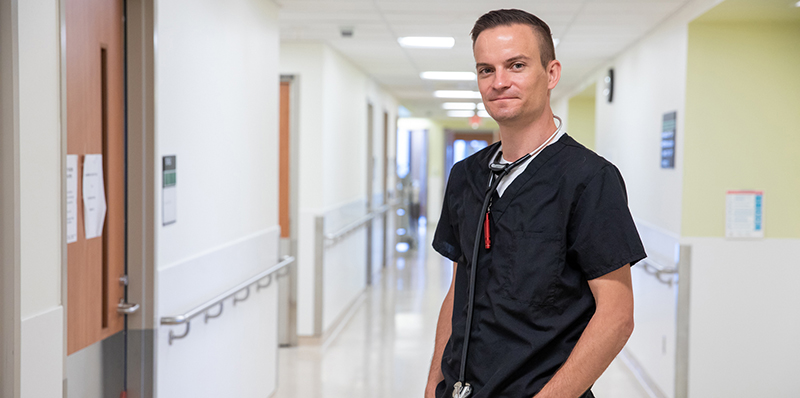
Dr. Kieran Quinn, a General Internist and Palliative Care Clinician Scientist, is addressing the needs of older adults with severe heart failure (HF) who are ineligible for advanced interventions like transplant and artificial pumps.
Each year, about 100,000 Canadians are newly diagnosed with HF, and around 750,000 are currently living with the condition. As the population ages, more older adults are affected by advanced HF. These individuals—often frail and living with multiple chronic conditions—represent the majority of those with advanced HF. Yet, they are frequently excluded from clinical trials, are too sick to be eligible for more advanced interventions and therefore lack effective treatment options.
Dr. Quinn’s research explores whether a promising new class of medications—SGLT2 inhibitors (SGLT2i)—can improve outcomes for this high-risk group. These drugs have previously shown benefits in broader HF populations, but their safety and effectiveness in people with severe HF remain unknown. His study will analyze real-world data from Canada and the U.S. to assess how SGLT2i use affects quality of life, visits to the emergency department, and the need for hospitalization.
“We are studying whether SGLT2 inhibitors can reduce hospital visits and improve daily life for older adults with severe heart failure. If effective, these drugs could help patients spend more quality time at home with their families and less time in hospital” said Dr. Quinn, who is also an Assistant Professor of Medicine at the University of Toronto.
The study also includes interviews with clinicians to gain insight into prescribing habits and identify system-level barriers to the use of SGLT2i in people with severe HF. By comparing and learning from each healthcare system, Dr. Quinn’s research aims to inform health policy and improve care for vulnerable patients who are often nearing the end of life.
Tackling inequities in diabetes technology for adults with type 1 diabetes
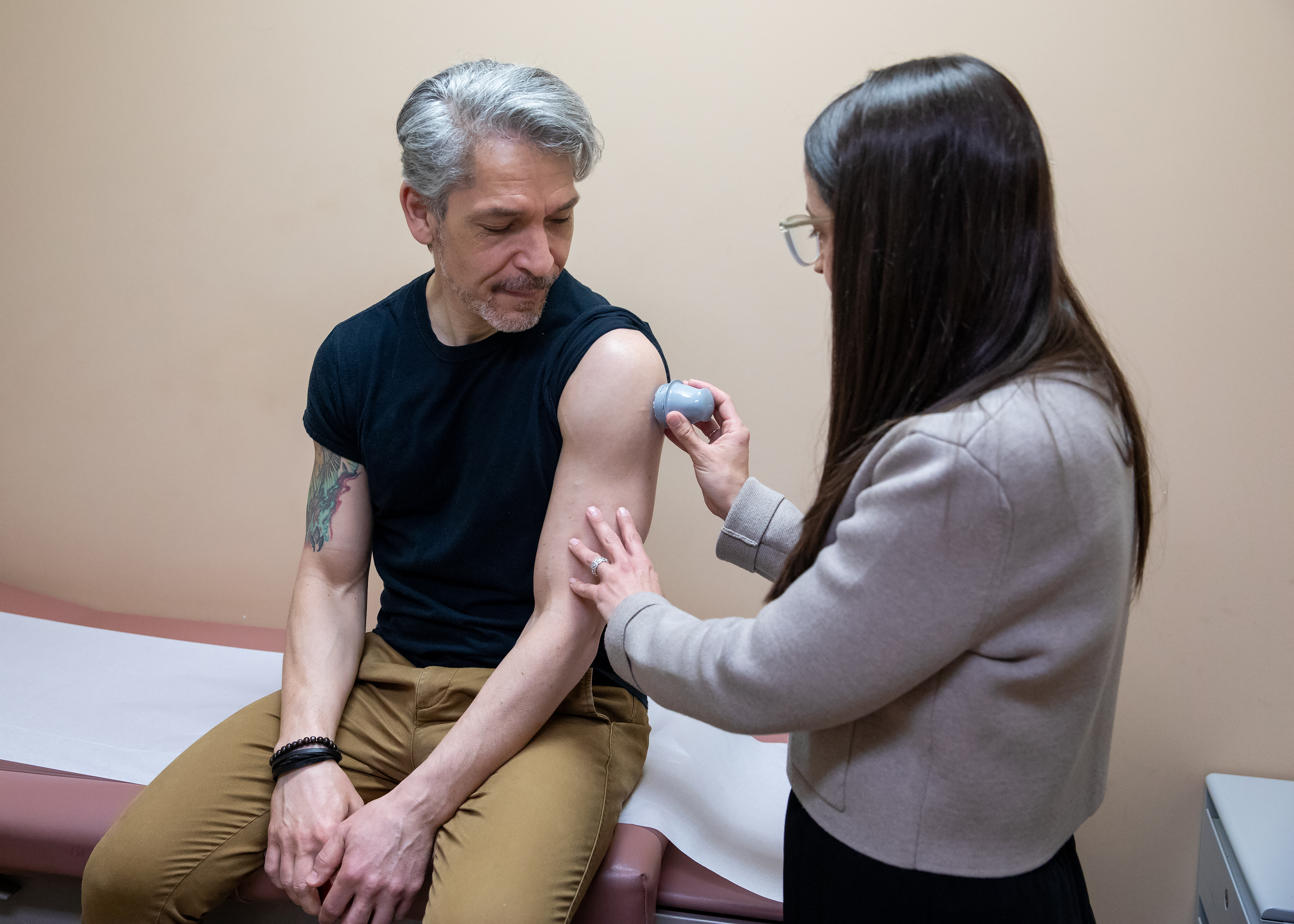
Dr. Alanna Weisman, an Endocrinologist and a Clinician Scientist at the Lunenfeld-Tanenbaum Research Institute, is working to close the equity gap in diabetes care. Her research focuses on socially disadvantaged adults with type 1 diabetes, who face worse health outcomes and are significantly less likely to use technologies like insulin pumps and continuous glucose monitors (CGMs).
Type 1 diabetes is a lifelong condition where the body can’t make insulin, so it must be given externally. Technologies like continuous glucose monitors (CGMs) and insulin pumps have revolutionized care—CGMs track glucose in real time, while pumps deliver insulin steadily, making management safer and more effective.
Despite public funding in some provinces, disparities persist due to non-financial barriers such as provider bias, administrative hurdles, and lack of culturally appropriate education. In Ontario, where about 250,000 people live with type 1 diabetes, fewer than half meet their recommended blood sugar targets—highlighting the need for better access to these technologies. Dr. Weisman’s project builds on the EQUAT1D initiative, which has already identified key inequities in technology use across Ontario and Quebec.
“Simply providing public funding for diabetes technologies is not enough to address existing disparities. In designing this study, we engaged individuals with lived experience of type 1 diabetes from socially disadvantaged communities to ensure their voices were heard,” said Dr. Weisman, who is also an Assistant Professor of Medicine at the University of Toronto.
The next phase of her project involves developing and piloting a behavior change intervention targeting both patients and providers. The pilot will be conducted across University of Toronto-affiliated clinics and, if successful, could inform a larger trial and national policy.
Ultimately, Dr. Weisman’s work could significantly improve outcomes for disadvantaged people with type 1 diabetes while lowering healthcare costs.










